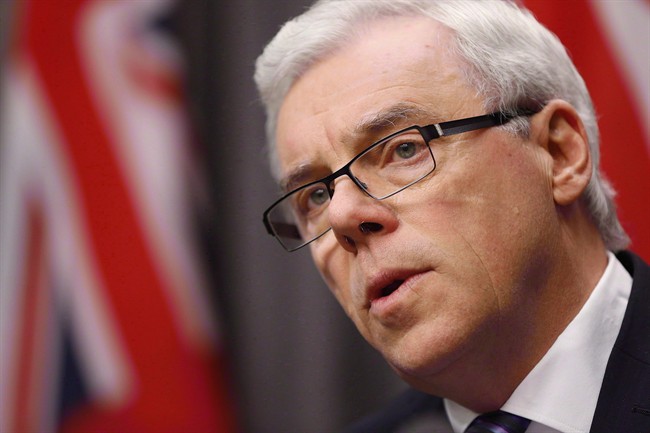WINNIPEG – Manitoba Premier Greg Selinger says his government is moving forward with recommendations from the Truth and Reconciliation Commission for teaching aboriginal history and
culture in schools.

The NDP government announced on Sunday that a new four-point plan will ensure students in Manitoba learn the legacy of residential schools as well as the 60s Scoop.
The ’60s Scoop refers to the practice in the 1960s and beyond of removing aboriginal children from their families to live in non-aboriginal homes.
Selinger says the plan includes introducing legislation this fall for a new First Nation, Metis and Inuit education policy for teaching the history and culture of aboriginals as well as the significance of treaties.
The Truth and Reconciliation Commission’s report earlier this month followed a six-year study of Canada’s residential schools that concluded the system was a “cultural genocide” that led to the
deaths of more than 6,000 children – many others who survived suffered various forms of abuse.
Last week, B.C. announced that children as young as 10 would soon be taught about residential schools, as well as other racist government programs, such as the Chinese Head Tax.
“With the release of the (commission’s) final report, it’s time to acknowledge the truth about what happened in Canada’s residential schools, educate students and move forward in a spirit of
reconciliation, mutual understanding and respect,” Selinger said in a news release.
“Educating students about historical wrongs is a step toward mutual respect, reconciliation, and understanding how we as a society can move forward together,” he added.
A report by the group People for Education released June 8 said public school teachers in Ontario are not receiving enough training on aboriginal issues and called on the province to add more
professional development for teachers.
Based on survey responses from nearly 1,200 school principals in Ontario, it said most elementary schools in the province do not offer any aboriginal education opportunities.
The Manitoba announcement also promises the government will work with post-secondary institutions to develop a strategy for introducing more indigenous content into bachelor of education
courses to support teachers.
It says the promised legislation will include a provision that will require the education framework to be reviewed every three years.
- Canadian man dies during Texas Ironman event. His widow wants answers as to why
- On the ‘frontline’: Toronto-area residents hiring security firms to fight auto theft
- Honda’s $15B Ontario EV plant marks ‘historic day,’ Trudeau says
- Canadians more likely to eat food past best-before date. What are the risks?



Comments